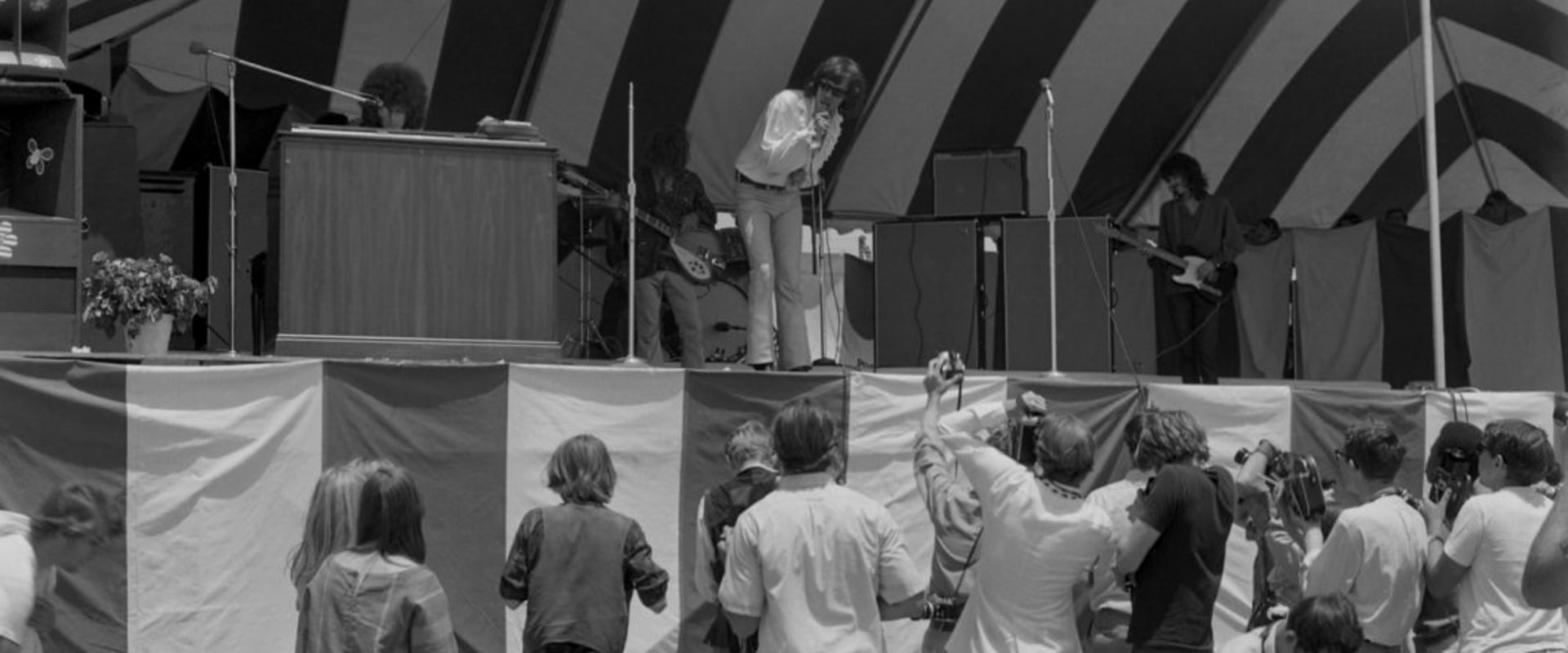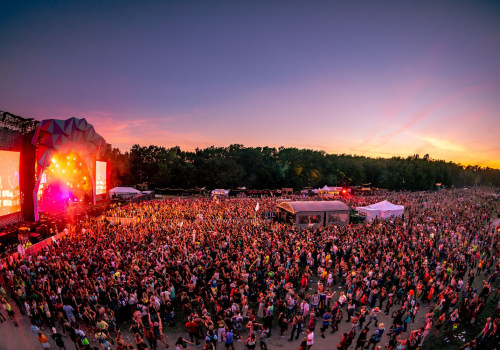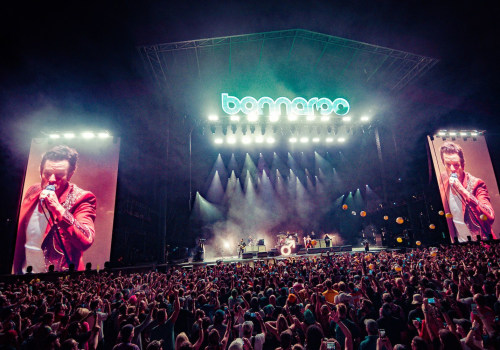Pages for offline publishers. More information A music festival is a community event with singing and instrument performances that is often presented with a theme such as the musical genre (p. ex.
Music festivals
are generally organized by individuals or organizations within music production networks, generally music scenes, music industries, or musical education institutions.The music festival is the largest and one of the most important performing institutions in musical life, a place to experience culture. Music festivals are usually held outdoors, with tents or temporary covered stages for artists. Music festivals often host other attractions, such as the sale of food and merchandise, dance, handicrafts, performing arts, and social or cultural activities. Many festivals are annual or are repeated at some other interval, while others are held only once.
Some festivals are organized as for-profit concerts and others are for the benefit of a specific charitable cause. At music festivals related to charitable causes, there may be information on social or political issues. As with the Coachella Valley Music and Arts Festival, there are different festivals that attract a lot of tourists. For example, Lollapalooza, Electric Daisy Carnival Las Vegas, Ultra Music Festival, Electric Forest and many more.
There are many music festivals, some of which include many different genres, but some festivals specialize in a specific genre, such as EDM, metal, hip hop, among others. There are also other types of festivals, such as jazz. An example of a jazz festival is the New Orleans Jazz and Heritage Festival. While contemporary festivals are often portrayed as a flourishing place for extraordinary experiences, they increasingly serve as a way to create cultural identity, lifestyle, community, belonging and self-actualization.
In addition, festivals are a demonstration to create escapism and a seasonal cultural economy for ritual and collective experimentation. In the late 1960s, rock bands and promoters began organizing their own music festivals. Perhaps the first formal and well-known festival dedicated to rock was the Monterey Pop Festival in 1967, which included the participation of The Who and drew the attention of the American public to that band. Another early festival was the Isle of Wight festival in 1968, which began as an event with about 10,000 people and included Jefferson Airplane, Pretty Things and Arthur Brown among its artists.
Music festivals have long been a staple of British summer, with revelers traveling from around the world to jump through muddy fields and fill their ears with the best of modern music. Last year alone, more than 450 music festivals were held across the UK. And while Britain's climate is often better suited to indoor activities, our festivals are well-attended and can be enjoyed, rain or shine. But when, where and how did our fondness for outdoor parties come about? In fact, music festivals were almost as common in the ancient world as they are today, although kings and deities were the center of worship more often than our modern rock gods.
In this PAAM event software blog, we look at the history of music festivals and decipher how they became the UK's best excuse for a summer vacation. Half a million attendees gathered at a dairy farm in Bethel, New York, to hear outstanding and emerging artists from the pop music scene, such as The Grateful Dead, Jefferson Airplane, The Who, Janis Joplin and The Jimi Hendrix Experience. The festival is the most monumental event in the history of music and has set the bar very high for current festivals, even today. Since listening to music has become practically free (or by subscription), access is unprecedented and makes live music much more special, according to Chirinos.
Interestingly, Summerfest made cities realize that music and other festivals can generate significant revenues, especially for struggling municipal budgets. Also known as Memphis in May, the Beale Street Music Festival is an annual summer event held at Tom Lee Park in Memphis, Tennessee. The mechanics that led music festivals to become the highest earners has a lot to do with the effects of modern life, Chirinos says. Many different musical genres now have their own festivals and some of the biggest in the world, such as Glastonbury or Summerfest in Milwaukee, are attended by hundreds of thousands of people.
The Summerfest festival was established in 1968, but focused not only on music but also on other events and spread throughout the city of Milwaukee. One of the most famous early music festivals in the United Kingdom, its popularity gradually grew until it reached an unexpected capacity of 600,000 people in 1970, when artists such as Jimi Hendrix, The Doors and The Who took the stage. As music festivals have gained popularity, these types of experiences have become a key feature of cultural life in the United States. While music festivals seem to be a relatively recent development, at least since the rise of rock and more liberal lifestyles starting in the 1960s, their history goes back much further.
The festival featured a wide range of musical artists such as Arcade Fire, Modest Mouse, Kanye West and The Shins. At the same time, their popularity allows people to point out that they are part of the main cultural moments, since the possibility of attending a music festival (and broadcasting one's own experience on social networks) has become an experience that many want. It was the first music festival to feature a pyramidal stage, inspired by the Great Pyramid of Giza. The Pythian Games at Delphi included musical performances and may be one of the first known festivals.
Chirinos says that, thanks to the help of large musical conglomerates, festivals such as Coachella and Bonnaroo have become well-known brands. Known as Oldchella, Desert Trip is a three-day festival with a lineup of artists that transcends generational music. .




